- Home
- Captain W E Johns
32 Biggles In The Orient Page 7
32 Biggles In The Orient Read online
Page 7
Scrimshaw let out a yell. "By thunder! I wish I'd been there. I'd have
"
"Maybe you'll get a chance to do even better later on," interrupted Biggles curtly. "I baled out over Moorven's crash to-day hoping to find out whether the new weapon strikes at the man or the machine. Unfortunately there was no indication. What I'm trying to find out now is, what you two fellows did that Moorven did not do. Conversely, what he did that you did not do. It may have been something that happened in the air or on the ground. I should have liked to put this same question to one of my flight commanders, who bought it this morning, but unfortunately he is not yet able to speak. Johnny, I want you to think very carefully and tell me everything you did from the moment you got up this morning."
"Where's that going to get us?" demanded Scrimshaw, lighting a fresh cigarette from the one he already held.
"It may get us nowhere," admitted Biggles. "But let's look at it this way. Only one thing is quite certain. Either our machines are being attacked by something we can't see, or the pilots in them. I'm going to deal with both possibilities in turn. Right now I am working on the personal aspect. Go ahead, Johnny."
"I got out of bed," began Crisp. "I took off my pyjamas and dressed."
"Didn't you wash, or have a bath?"
"No."
"Go on."
"I then went over to the mess, where I stood by the big table and had some coffee and biscuits."
"Was anyone else there?"
"Not when I got there. The others came in later." "And what did they do?"
"They joined me at the table."
"And had coffee and biscuits?"
"Yes."
65
"You're sure of that?"
"Scrimshaw's here, ask him."
"That's right," said Scrimshaw shortly. "We all had coffee and biscuits. Nothing funny about that, was there?"
"Nothing at all," agreed Biggles calmly. "And this coffee all came out of the same pot?"
"Yes," Crisp answered.
"What about the biscuits?"
"We all helped ourselves from the same plate."
"And there was nobody else in the room all this time—I mean staff?"
"Nobody. The stuff is put out and anybody who wants can help himself. That's the usual arrangement."
"Go on," invited Biggles.
"The five of us then walked over to the machines together."
"Didn't you smoke after finishing the coffee?" "Sorry—yes. I forgot that. I had a packet of cigarettes
in my pocket. Being finished first I had one, and passed the packet."
"Then you all smoked cigarettes from the same packet?"
"What's all this?" snapped Scrimshaw. "Are you trying to make out—"
"Take it easy," interrupted Biggles. "I'm not trying to make out anything. I'm asking for facts. Go ahead, Johnny."
"That's all. We got into our machines and took off." "You didn't touch anything else?"
"No."
"Did you speak to anyone?"
"Yes, I spoke to the sergeant—Sergeant Gray." "What about?"
Johnny looked uncomfortable. "About the changeover."
"What change-over?"
"Well, you see, I swopped planes with Moorven." "You what?"
66
"Changed planes."
"Why?"
"Well, I reckoned perhaps somebody was tinkering with the machines, but for some reason or other mine was always left alone. We decided to change kites to see what happened. If I went west, and Moorven got back, it would begin to look as if there• was some peculiarity about my machine that was saving me all the time. It was because of this that I feel so rotten now. If poor old Moorven had stuck to his own machine he would have got back."
"You mean—he might have got back," said Biggles softly. "I understand, Johnny. What you really did was to take a big chance of going west yourself. That was pretty noble of you. I'm glad you mentioned this because it rather goes to prove that the machine doesn't make any difference, and that's important. Sergeant Gray knew about this change?"
"Yes."
Biggles turned to Scrimshaw. "Did you speak to anybody?"
"Not a soul."
"And in the air neither of you did anything beyond controlling the aircraft?"
Scrimshaw laughed mirthlessly. "What else was there to do?"
Crisp nodded. "That's right enough. What else could we do?"
"I don't know," answered Biggles. "That's what I'm trying to find out. You say you both did nothing, so that settles that. And neither of you at any time heard or felt the slightest thing, no noise, no jar, nothing unusual?"
"Nothing at all," said Johnny.
"That goes for me too," added Scrimshaw.
"Not even when Moorven fell out of position?" queried Biggles.
"No."
"You saw him go, of course?"
"Yes, we both saw him go," confirmed Johnny. "Moorven didn't say anything over the radio?"
67
"Not a word."
"Did you speak to him?-
"Yes. I called him, and asked him what he was doing." "Didn't he answer?"
"No."
"And the others went down in similar circumstances?"
"Yes. Grainger fell out about ten minutes after Moorven went, but Larkin lasted nearly all the way home. He went down about five miles inside the Jap lines."
"I see—thanks." Biggles looked at the Air Commodore. "Any questions you would like to ask?"
The Air Commodore shook his head. "No. I think you've covered the ground pretty thoroughly. There's just one thine, though." He looked at Crisp and Scrimshaw. "What are you two fellows going to do? Your squadron is washed out for the time being. Would you like a spot of leave?"
"Not for me, sir," answered Scrimshaw. "Leave is the last thing I want."
"And me," added Johnny. "We'll go on flying till we hit the deck or get to the bottom of this thing, one or the other."
"It won't do either of you any good to go on living in an empty mess," suggested the Air Commodore gently. "Bigglesworth has to-day lost one of his flight commanders. Crisp, why don't you let me attach you, temporarily, to his squadron, to fill the gap? I'm sure he'd be glad to have you. And you, too, Scrimshaw. You'll work better if you have someone to talk things over with."
"Yes, why not?" put in Biggles quickly.
The two pilots looked at each other.
"That suits me fine," said Johnny. "That is, if Scrim. will come over?"
"I'll come anywhere," muttered Scrimshaw. "It's all the same to me."
"It may be, but it isn't all the same to me," said Biggles coldly. "The boys in this squadron have covered a lot of sky since the war started, and it wouldn't be fair 68
to them to turn in more risks than they normally take. Frankly, Scrimshaw, we haven't much confidence in- fellows who grab a bottle when things get sticky."
Scrimshaw flushed scarlet. "Who said
?"
"I said," broke in Biggles without raising his voice. "And what I say I mean. The sooner you understand that the better. Oh, I know how you feel. I've been through it myself, more than once. I was going through it when you wore safety-pins instead of buttons, but I got over it—if I hadn't I shouldn't be here now. If you go on ginning-up you'll be no use to yourself or anyone else. We needn't say any more about it—but think it over. Make a party with my fellows after dinner and take a trip round the town. They'll do anything you want to do, but they don't brood and they don't booze—those are the only two things we bar. We've too much to do. That's all for now." Biggles got up.
DEATH MARCHES ON
As the officers dispersed, talking over the mystery quietly among themselves, Biggles turned to Air Commodore Raymond. "I think I shall go along right away and have a word or two with Sergeant Gray, sir," he announced. "There's just time before dinner "
"Do you mind if I come with you?" asked Johnny Crisp. "It's partly my pigeon. Gray is in A Flight—my flight."
/> "Come by all means—only too glad to have you along," invited Biggles. "He'll probably say more to you than to strangers. That'll be enough, though, we don't want a crowd."
Biggles, the Air Commodore and Johnny, left the officers' quarters and walked along to the sergeants' mess, where they learned that Sergeant Gray was out.
"Any idea where he is?" Biggles asked the flight sergeant who had come to the door.
69
"I think I heard him say something about going down to the flight shed, sir," returned the flight sergeant. "He wanted to have another look at those two machines that got back this morning."
"Thanks," acknowledged Biggles. "Maybe we'll find him there."
"I hope he isn't going to let this thing prey on his mind," remarked Johnny, as they walked on to the hangar in which the two surviving A Flight machines were parked. "He'
s a good chap. He's been in the squadron pretty nearly since it was formed at Kenley, years ago."
The hangar was in darkness. The Air Commodore switched on a torch. The beam fell on the two Hurricanes, but there was no one with them.
"Anyone about?" called Biggles.
There was no answer.
Biggles saw a narrow crack of light half-way down and on one side of the building. "That must be him, in the flight office," he observed.
They walked on to the door. Biggles opened it. He stopped. "Take a look at this," he murmured dryly.
Lying on the floor, breathing stertorously, was a sergeant.
"That's Gray," said Johnny. "Drunk as a lord, by the look of it."
"You seem pretty sure of that." challenged Biggles.
"He's done it before. The same thing happened last week. If I'd put him on a charge he'd have lost his stripes, and I hate doing that to a good airman. I made him promise he wouldn't do it again."
"Does he make a habit of doing this sort of thing?" asked the Air Commodore.
"Not as far as I know," replied Johnny. "I think he's only taken to it lately. Pity."
Biggles shook the sergeant by the shoulder. "Come on, snap out of it." he ordered peremptorily.
The sergeant did not move.
"Get up, Gray," snapped Johnny irritably.
70
The sergeant lay still, snoring.
Biggles pommelled him, and in the end slapped his face. The sergeant grunted, but did not move.
"He certainly has got a skinful," muttered Johnny. "He sort of went to pieces when I told him that Moorven and the others had gone. west, but I didn't think he'd take it like this."
He shook the sergeant again.
"It's no use," said Biggles quietly. "We shan't get anything out of him in that state.
There's only one thing that might bring him round. Slip over to the mess, Johnny, and get a jug of black coffee, hot."
Johnny went off at a run.
While they were waiting, the Air Commodore spoke to Biggles. "What do you really make of all this?"
"It's fantastic—that's the only word for it," replied Biggles. "What beats me is, the thing is so infernally inconsistent. To-day, Tug made three trips well into enemy country and got away with it every time. Why? How? There must be an answer to that, if only we could hit on it. There were a lot of enemy machines about; I saw them; yet they weren't affected. They flew as if they had nothing to fear. Very queer. I have a feeling, not based on anything concrete, that "
Johnny came in, slightly breathless from his run. "There was no black coffee on tap, so I ordered some," he announced. "Lal Din says he will bring it over right away." He looked at the sergeant. "Silly fool, letting the flight down like this."
A minute or two later the steward came in. His habitual smile broadened when his eyes fell on the sergeant.
"He cachum flenty whisky," he chuckled. "Here coffee, sahib. Velly stlong."
Biggles took' the coffee-pot, a small copper one, from the tray, and walked over to the sergeant. "What part of the world do you come from, Lal Din?" he asked casually. "You don't talk like a man of this country."
"Me Burmese. I None Mandalay," was the answer. "You don't look much like a Burman,
" said Biggles 71
without looking up, as he dropped on his knees beside the unconscious N.C.O.
"Father Burman, but he dead long time. Mother, she Chinese. Bling me up China fashion,
" said Lal Din.
Biggles forced the N.C.O.'s teeth apart, not without difficulty, and poured coffee into the mouth.
The sergeant spluttered. Biggles looked over his shoulder at Lal Din, who was still standing just inside the door. "What are you waiting for?" he asked sharply.
"I wait for coffee-pot, sahib. Canteen ploperty. Maybe someone else want coffee."
"You can fetch it later on. We may be some time." "Velly good, sahib." Lal Din went off.
"What's the matter with him? Don't you trust him?" asked the Air Commodore.
"In a show like this, the only people I trust are those I know," answered Biggles, pouring more coffee into the sergeant's mouth.
Again the sergeant spluttered, chokingly. His head lolled from side to side. His eyes opened.
"Come on, Gray; pull yourself together," rapped out Biggles tersely.
"Wash-washer matter?" gasped the sergeant.
"You're drunk," said Johnny bitingly.
The sergeant was indignant. "Thash a lie. Not drunk." Biggles gave him more coffee.
"He says he isn't drunk," said Johnny, looking at Biggles and the Air Commodore in turn.
"Of course he does." The Air Commodore laughed lugubriously. "Did you ever know a drunken man admit that he was tight? I didn't."
"If you tell him he's drunk he'll spend the rest of the night trying to prove that he isn't,"
put in Biggles wearily.
The sergeant's eyes were clearing. "Wash wrong?" he demanded in a dazed voice, and was then violently sick.
"Tight as an owl," muttered Johnny. "You won't get any sense out of him till he's slept it off."
"I'm afraid you're right," agreed Biggles sadly. "What 72
a nuisance." He shook the sergeant again. "Listen to me, Gray. Can you hear what I say?"
"Yes—shir."
"That's better. We'll talk to you later."
"Don't wanner talk—hic. Those yellow monkeys—killed my officers. 1 wanner get at '
em. You hear me? I wanner—"
Biggles stood up. "Yes, we know. You go to your bunk and sleep it off."
"Schleep what off?" slurred the sergeant drowsily.
"You're all ginned-up," put in Johnny, who was getting more and more angry. "You promised me you wouldn't touch the stuff."
"Drunk! Hark at him," pleaded the sergeant. "Says I'm drunk. I was never drunk—in my life—no shir."
"We'll settle that argument later," averred Biggles, arranging a packed parachute under the sergeant's head. "Have a sleep. Here, you might as well finish the rest of the coffee."
Without assistance the N.C.O. took the remainder of the coffee at a gulp. "Thash berrer,"
he declared sleepily. "I just wanner be alone," he rambled on. "I only came here to be alone. Sat here, chewing the thing over, thas all. I may be sick, but I ain't drunk—no shir.
"
"Silly ass," muttered Johnny.
"I wouldn't be too hard on him," said Biggles as they went out. "His nerves are probably in rags. You say he's been with the squadron a long time? Well, now he's seen the squadron washed out. He ought to be sent home for a rest."
"I'll get him posted," promised the Air Commodore.
They went to the mess and had dinner. Later, after listening to the news on the radio, they sat in a corner with Algy and Berrie discussing the mystery from all angles, without, however, coming any nearer to solving it. Biggles said little. Eventually he looked at his watch.
"Eleven o'clock," he announced. "I think I shall turn in, and leave Sergeant Gray until tomorrow."
73
"Ill just walk down and make sure he's all ri
ght," offered Johnny.
"Be as well," agreed Biggles.
The Air Commodore got up. "I'll be getting along, too," he decided. "See you in the morning." He nodded to the others and departed.
Johnny went off. Biggles stood for a minute or two talking to Algy and Ginger, who wanted to know if he had made any plans for the following day. He told them he wanted to do some more thinking before he decided on a definite programme.
He was walking along the path that led to the officers' sleeping quarters when an airman overtook him.
"Excuse me, sir, you're wanted on the 'phone," said he. "Which 'phone?" asked Biggles.
"The one in the hall, sir."
Biggles turned back. "Where have you just come from?" he asked.
"I was on duty in the kitchen, sir."
"I see." Biggles stepped into the hall and picked up the telephone.
"Is that you, Biggles?" said a voice. "This is Johnny here. I'd like you to come down to the flight shed." "Something wrong?" queried Biggles.
"Yes, it's the sergeant."
"Is he still there?"
"Yes."
"Is something wrong with him?"
"Plenty," said Johnny. "He's dead."
"Stay there," said Biggles tersely. "I'll be right down."
Biggles ran to the shed. Johnny was there, alone, bending over the sergeant, who was lying on his back on the floor, the position in which they had left him. One glance at the open mouth and staring eyes was enough.
"He's a goner all right," said Biggles in a hard voice. He shook his head. "I don't get it.
He was coming round fast when we left him. Well, there goes my hope of learning anything from him. I wonder why he died? You've had a look at him I suppose?"
74
"Of course. Can't find a thing. Not a wound, not a mark of any sort. Can't make it out. He must have passed out in a drunken stupor."
"Well, there's nothing we can do except send for the doctor," said Biggles.
"I wonder if he did himself in, in a fit of remorse?" suggested Johnny.
"I imagine it is very difficult to commit suicide without leaving some sign of it," returned Biggles. "Go and fetch the M.O."
Johnny departed on his errand.
After gazing at the body for a moment or two Biggles looked round the little room, his eyes taking in everything. Nothing had been disturbed. The room appeared to be precisely as when he had last seen it. The coffee-pot and the tray were still there. He went to the pot and picked it up. It was empty. Thoughtfully, he put it down again. For a while he did not move from where he stood; then his eyes stopped on a tiny object that lay on the floor near the waste-paper basket. A quick step took him to it. Stooping, he picked it up. It was a round pellet of paper, pink. Slowly he unfolded it and found in his hand a slip of grease-proof paper, about three inches square. There was printing on one side. He read it: WITH THE COMPLIMENTS OF CHARNEYS, LTD., LONDON. NOT

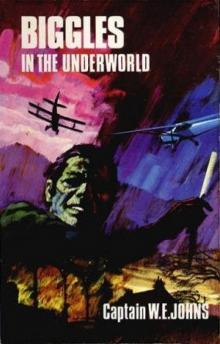 Biggles in the Underworld
Biggles in the Underworld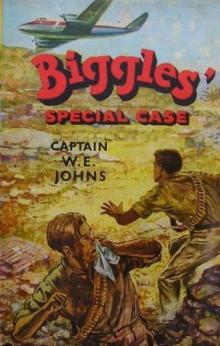 Biggles' Special Case
Biggles' Special Case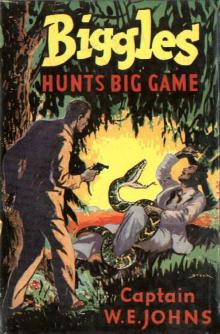 34 Biggles Hunts Big Game
34 Biggles Hunts Big Game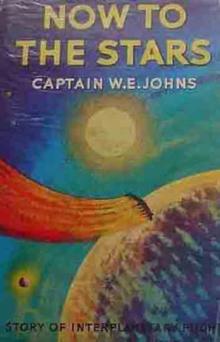 03 Now To The Stars
03 Now To The Stars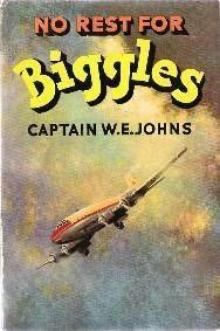 55 No Rest For Biggles
55 No Rest For Biggles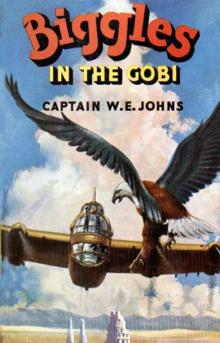 46 Biggles in the Gobi
46 Biggles in the Gobi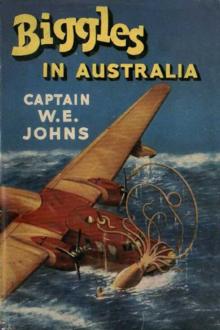 52 Biggles In Australia
52 Biggles In Australia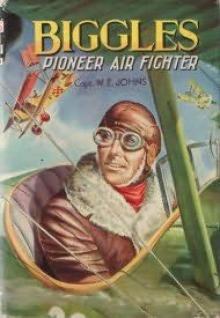 51 Biggles Pioneer Air Fighter
51 Biggles Pioneer Air Fighter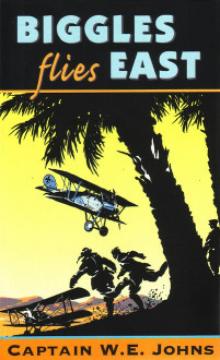 05 Biggles Flies East
05 Biggles Flies East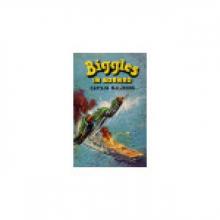 28 Biggles In Borneo
28 Biggles In Borneo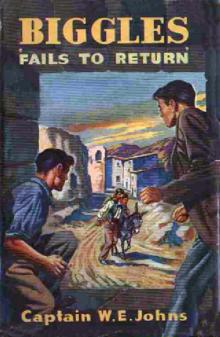 29 Biggles Fails to Return
29 Biggles Fails to Return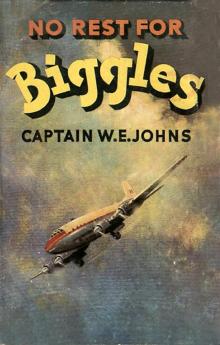 55 No Rest For Biggles (v2)
55 No Rest For Biggles (v2)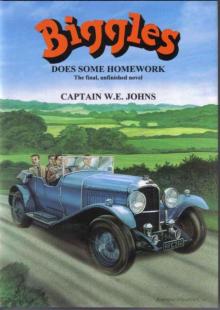 Biggles Does Some Homework
Biggles Does Some Homework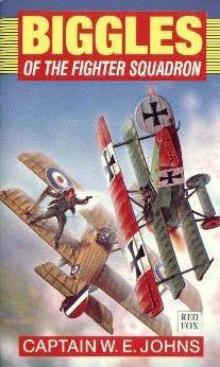 Biggles of the Camel Squadron
Biggles of the Camel Squadron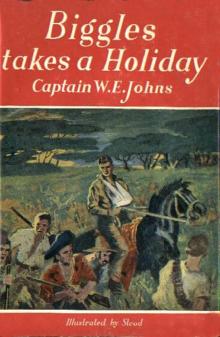 35 Biggles Takes A Holiday
35 Biggles Takes A Holiday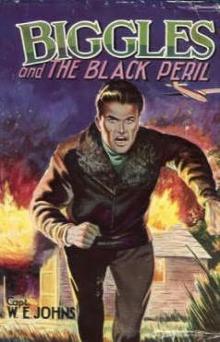 Biggles And The Black Peril (06)
Biggles And The Black Peril (06)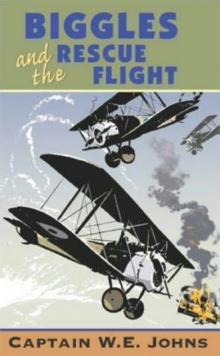 17 Biggles And The Rescue Flight
17 Biggles And The Rescue Flight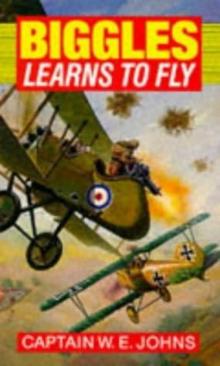 Biggles Learns To Fly
Biggles Learns To Fly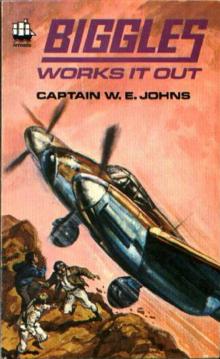 40 Biggles Works It Out
40 Biggles Works It Out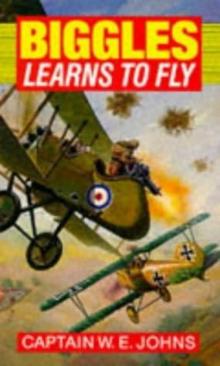 05 Biggles Learns To Fly
05 Biggles Learns To Fly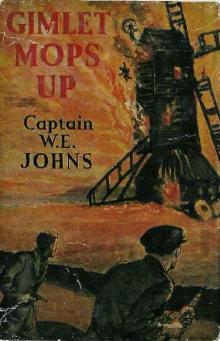 04 Gimlet Mops Up
04 Gimlet Mops Up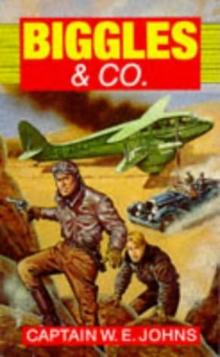 10 Biggles and Co
10 Biggles and Co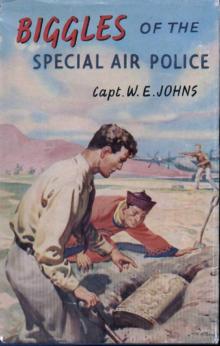 47 Biggles Of The Special Air Police
47 Biggles Of The Special Air Police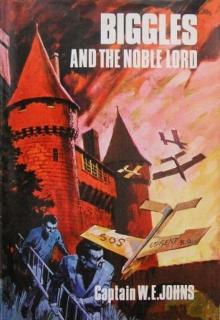 Biggles and the Noble Lord
Biggles and the Noble Lord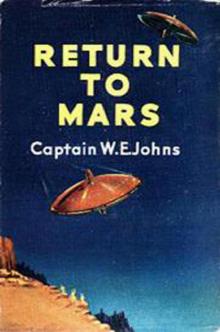 T2 Return To Mars
T2 Return To Mars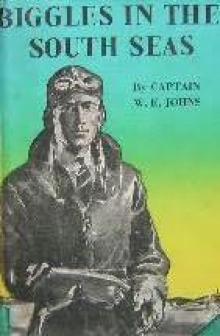 21 Biggles In the South Seas
21 Biggles In the South Seas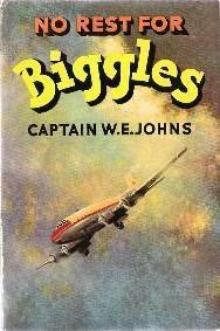 No Rest For Biggles
No Rest For Biggles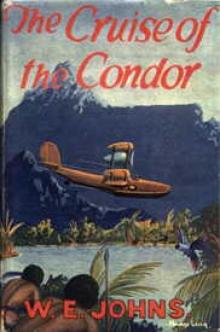 Biggles In The Cruise Of The Condor (02)
Biggles In The Cruise Of The Condor (02)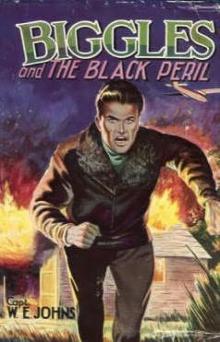 06 Biggles And The Black Peril
06 Biggles And The Black Peril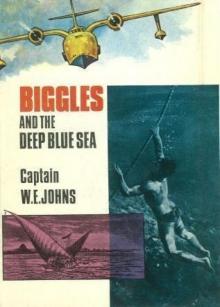 Biggles and the Deep Blue Sea
Biggles and the Deep Blue Sea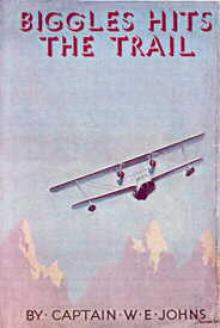 06 Biggles Hits The Trail
06 Biggles Hits The Trail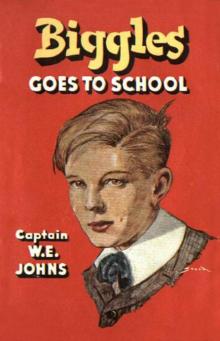 39 Biggles Goes To School
39 Biggles Goes To School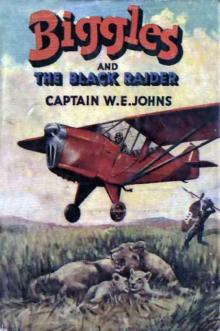 44 Biggles and the Black Raider
44 Biggles and the Black Raider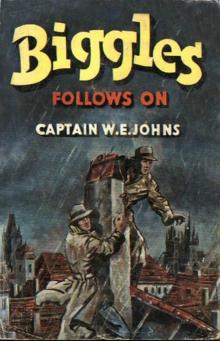 42 Biggles Follows On
42 Biggles Follows On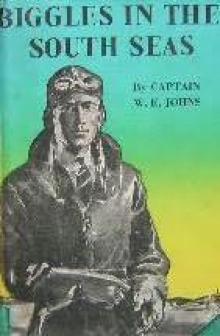 Biggles In the South Seas
Biggles In the South Seas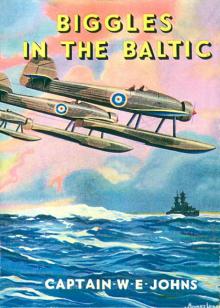 21 Biggles In The Baltic v3
21 Biggles In The Baltic v3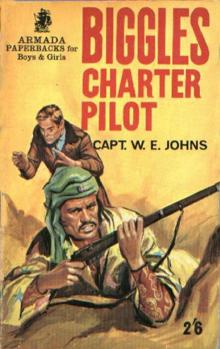 27 Biggles - Charter Pilot
27 Biggles - Charter Pilot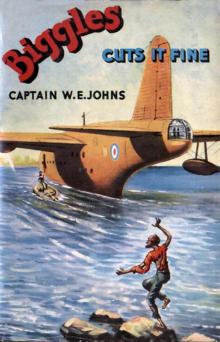 49 Biggles Cuts It Fine
49 Biggles Cuts It Fine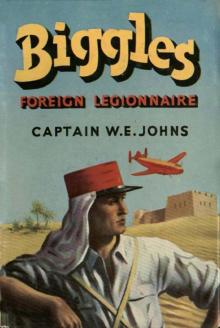 51 Biggles Foreign Legionaire
51 Biggles Foreign Legionaire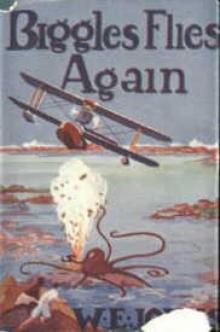 04 Biggles Flies Again
04 Biggles Flies Again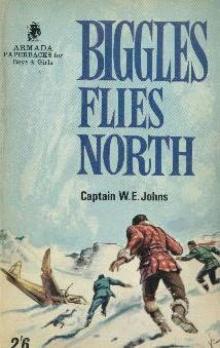 16 Biggles Flies North
16 Biggles Flies North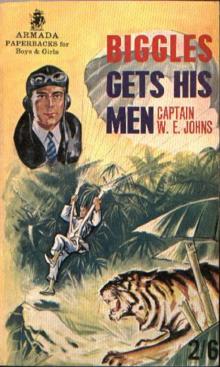 37 Biggles Gets His Men
37 Biggles Gets His Men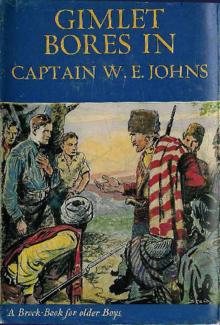 07 Gimlet Bores In
07 Gimlet Bores In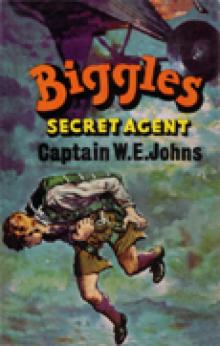 19 Biggles Secret Agent
19 Biggles Secret Agent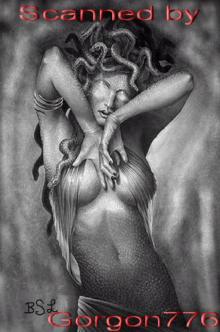 32 Biggles In The Orient
32 Biggles In The Orient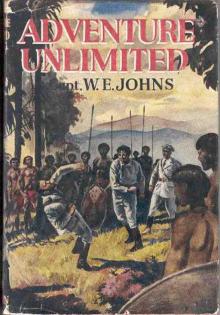 Adventure Unlimited
Adventure Unlimited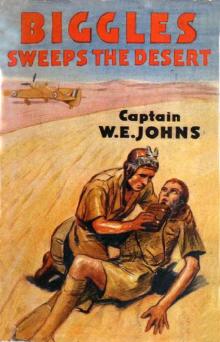 26 Biggles Sweeps The Desert
26 Biggles Sweeps The Desert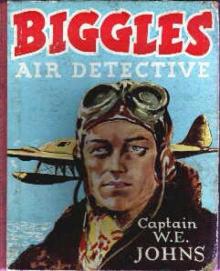 Biggles Air Detective (43)
Biggles Air Detective (43)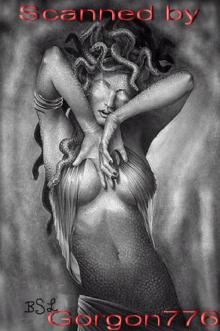 36 Biggles Breaks The Silence
36 Biggles Breaks The Silence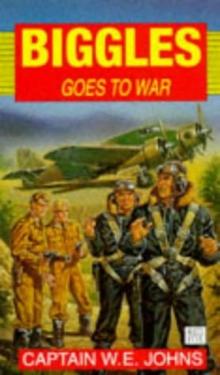 14 Biggles Goes To War
14 Biggles Goes To War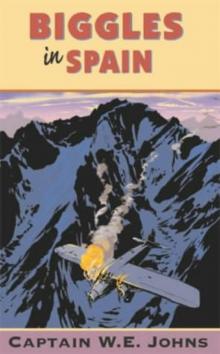 18 Biggles In Spain
18 Biggles In Spain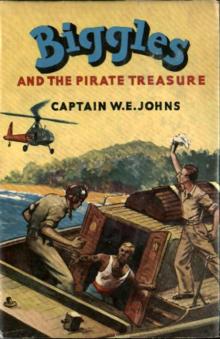 50 Biggles and the Pirate Treasure
50 Biggles and the Pirate Treasure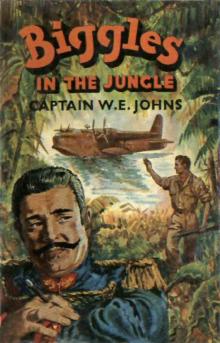 25 Biggles In The Jungle
25 Biggles In The Jungle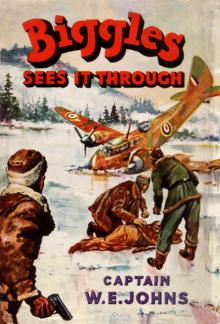 23 Biggles Sees It Through
23 Biggles Sees It Through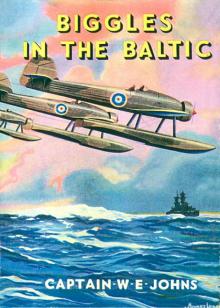 21 Biggles In The Baltic
21 Biggles In The Baltic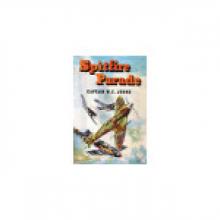 24 Spitfire Parade
24 Spitfire Parade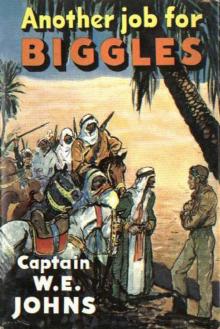 38 Another Job For Biggles
38 Another Job For Biggles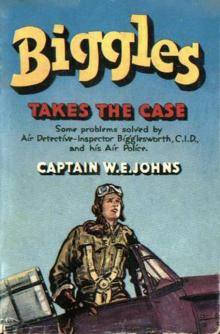 41 Biggles Takes The Case
41 Biggles Takes The Case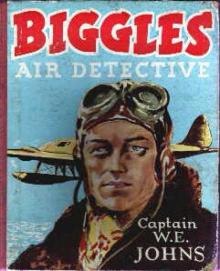 43 Biggles Air Detective
43 Biggles Air Detective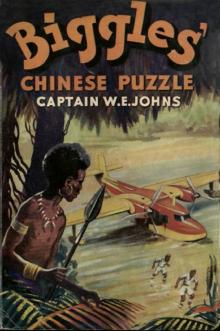 53 Biggles Chinese Puzzle
53 Biggles Chinese Puzzle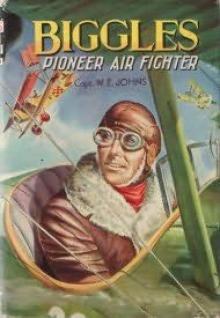 Biggles Pioneer Air Fighter (51)
Biggles Pioneer Air Fighter (51)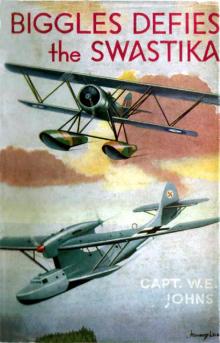 22 Biggles Defies The Swastika
22 Biggles Defies The Swastika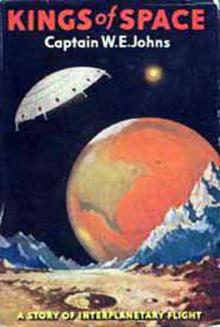 01 Kings Of Space
01 Kings Of Space